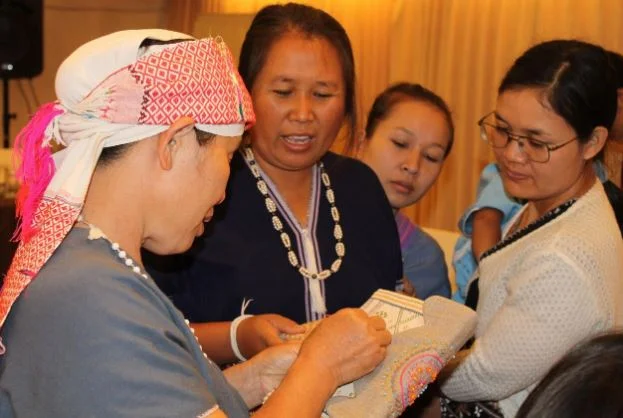
“This is the project that I have been waiting for so long!” Mrs. Peenee Moonkul, a Karen leader and Chairperson of a weaving group in Maewang district, Chiang Mai, Thailand expressed the sentiments of the participants in the project of the Indigenous Women’s Network in Thailand (IWNT) which aimed to highlight indigenous knowledge designed and deeply imbedded in traditional handicrafts such as weaving and embroidery of indigenous women in the country.
The project in the indigenous communities of Hmong, Karen, Lisu and Mien peoples was comprehensive. For capacity building, Research and Documentation training was conducted for the community researchers’ additional knowledge, understanding and confidence. This contributed to the realization of IWNT staffs, committee members and community leaders that preserving and maintaining traditional knowledge has an important role in strengthening their organization and indigenous communities. The monitoring visits aided the project holders and participants to gain better understanding of the communities, especially traditional knowledge and heritage that are at risk or diminishing.
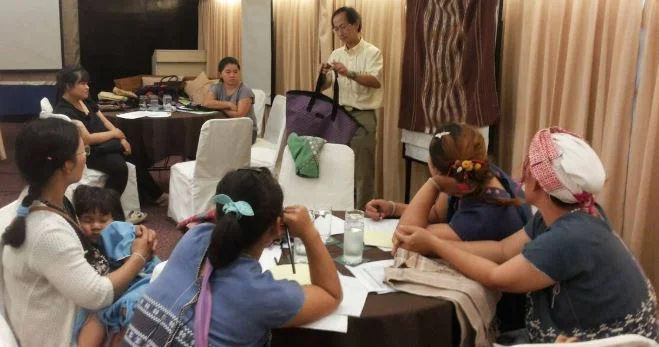
A Skills Training was carried out on “product designing and developing” where experts assisted the participants to create and develop new designs and products to enhance their handicraft production and promote this. Other trainings given were on Basic Media Production, Photography and Videography which enabled the IWNT staffs and community researchers to take good photos and record good VDOs clips.
The entire project yielded a wealth of insights and significant level of empowerment among the women participants who realized that their indigenous knowledge is vital to their lives and identities; that this is incomparable, has high value, and they just need to learn how to make it beneficial to them and their communities. Indigenous women’s knowledge on weaving and embroidery is a mark of their identities and pride, thus this need to be maintained, preserved and taught to their children. Their income is augmented by sales of their handicrafts and they realized the benefits derived from maintaining indigenous knowledge on weaving and embroidery.
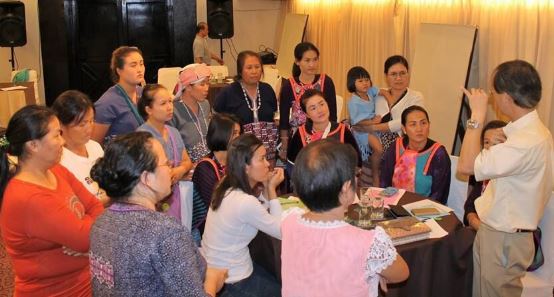
An indigenous women’s handicraft cooperative was established in the communities making it possible for them, with the experts’ assistance, to develop new and more innovative products to be marketed in local, national, and international events, regional fairs, shops and outlets. Through IWNT’s facilitation, products were displayed, promoted, and sold at different occasions.
The project was a vehicle for awareness and realization that indigenous knowledge and heritage need to be maintained, preserved, and transferred by knowledge holders to the younger generations.
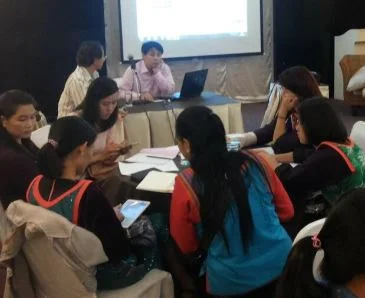
“This is a very useful project. I have never known that these patterns of our Hmong embroidery have names. You helped us document our knowledge and turn it into a book and later this book will help our grandchildren know that this knowledge belongs to Hmong people!” was Ban Maesa Mai village headman Mr. Kittiphong Thanomrungrueng’s enthusiastic and grateful statement on the project.
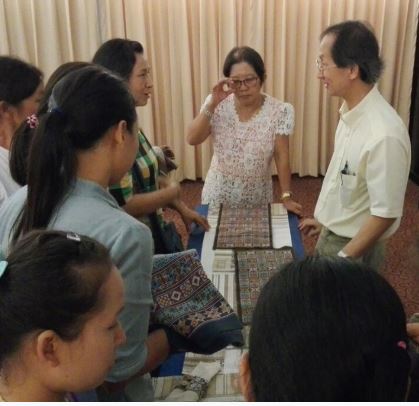
Advocacy and networking were achieved through the promotion and sale of indigenous women’s products which also fostered understanding of indigenous knowledge and heritage focused on handicrafts. This has resulted in increased knowledge and appreciation by mainstream Thai society of indigenous knowledge and products.
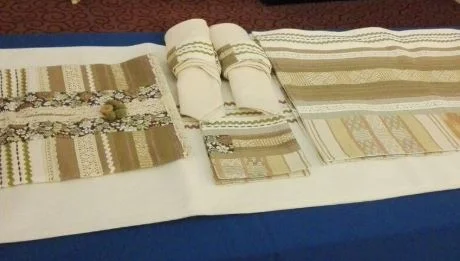
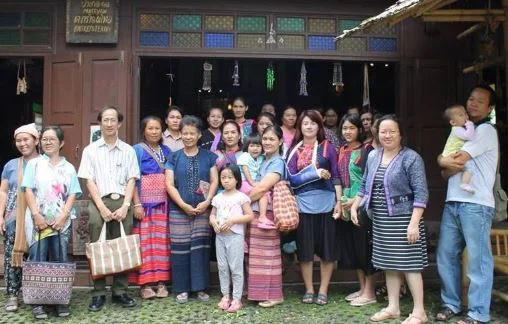
Indigenous Women’s Network of Thailand (IWNT) implemented the project Indigenous Knowledge in Traditional Handicrafts of Indigenous Women in Thailand in 2016 with support from PAWANKA Fund.
